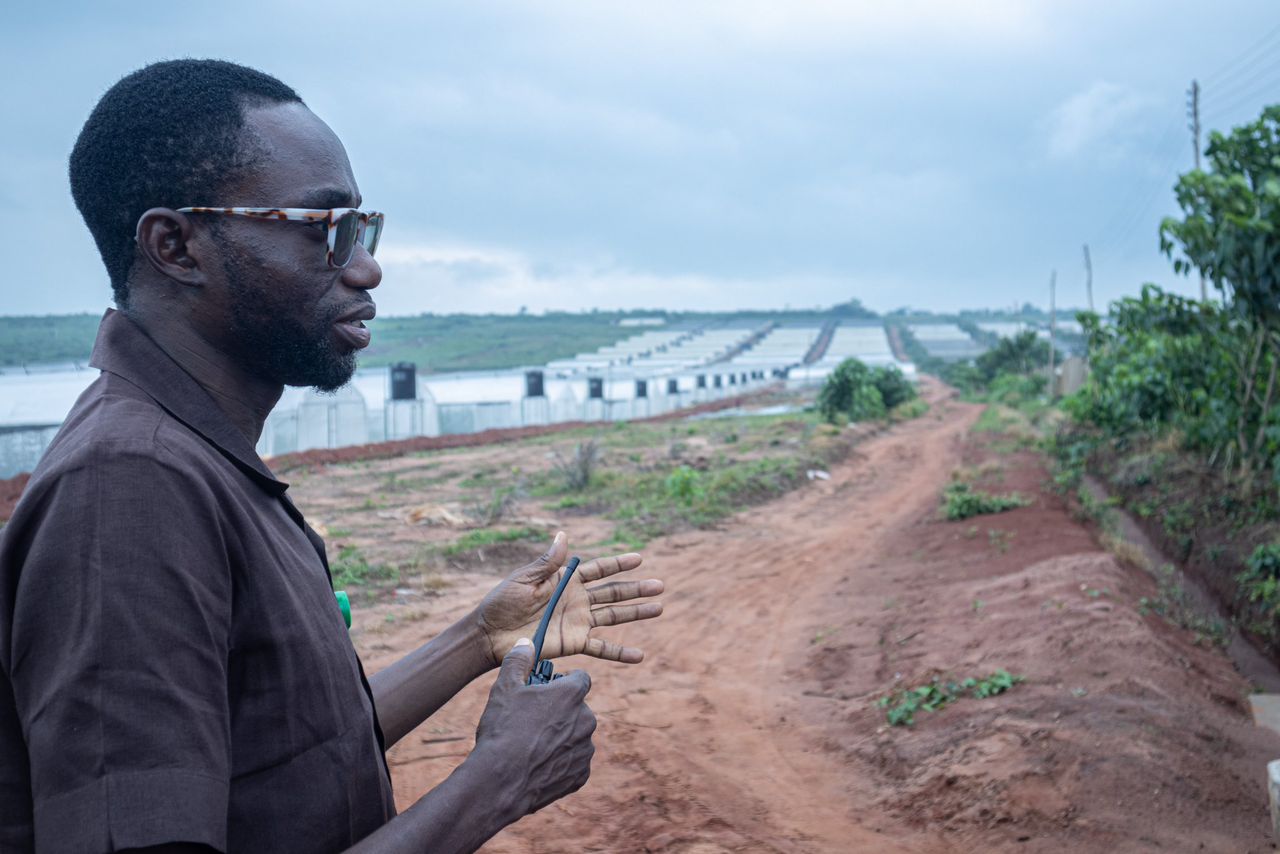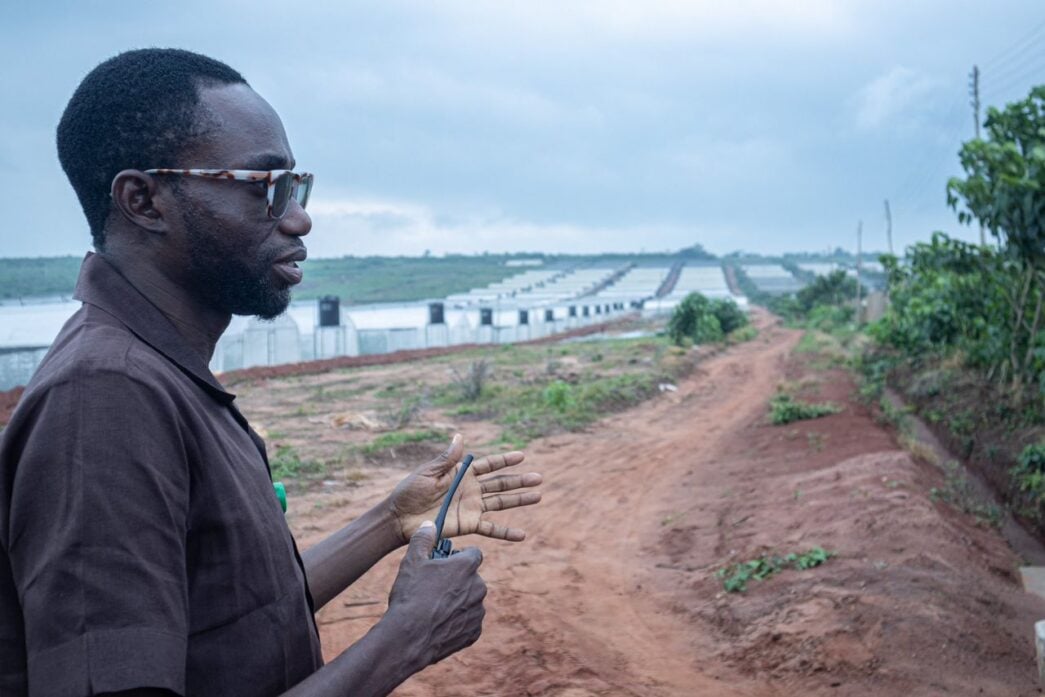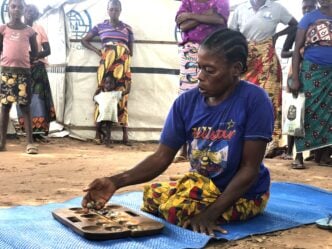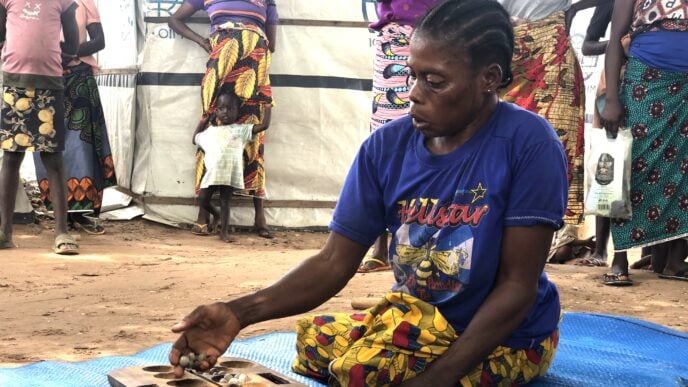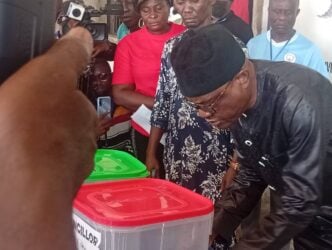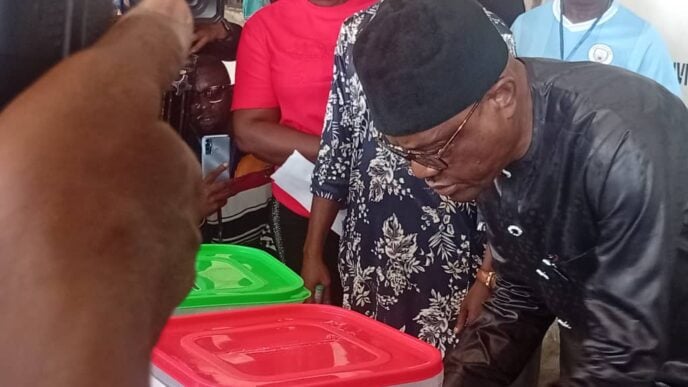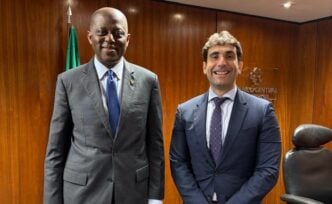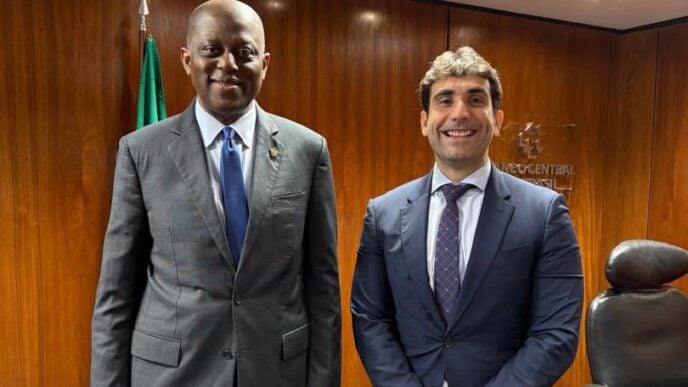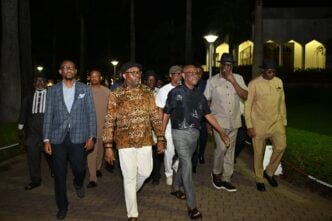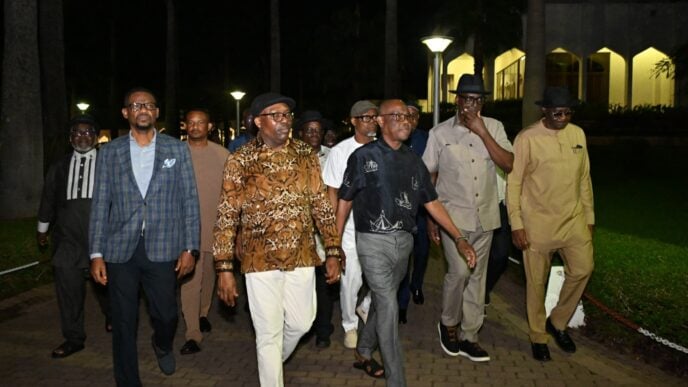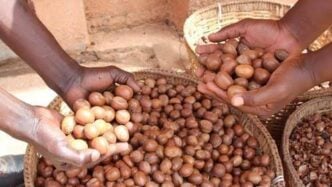Samson Ogbole
Samson Ogbole grows food without soil. Tomatoes sprout in nutrient mist, vegetables rise from trays of water, and yams dangle in the air. This disruption rooted in science challenges Nigeria’s age-old hoe-and-cutlass tradition.
The wizard farmer, as he is fondly called, believes that food production shouldn’t be seasonal because hunger isn’t.
Ogbole did not begin as a farmer. Trained as a biochemist, he approached agriculture as a science to be questioned and explored. That scientific eye would become his greatest advantage.
The turning point came during his national service at the International Institute of Tropical Agriculture (IITA). There, he first encountered aeroponics, a system where plants flourish in air with their roots completely untouched by soil.
Advertisement
Rather than pursue a corporate career after earning advanced degrees from Igbinedion University, the University of Ibadan, and later Harvard Business School and Stanford University, Ogbole returned to agriculture with a sense of mission.
“I had the opportunity to serve in IITA during my NYSC, and that was when I first heard about soilless farming as we began the journey to grow yams in the air, aeroponics technology under the YIIFSWA project,” he told TheCable.
“My background gave me a unique perspective to understand the science from a genetic perspective.”
Advertisement
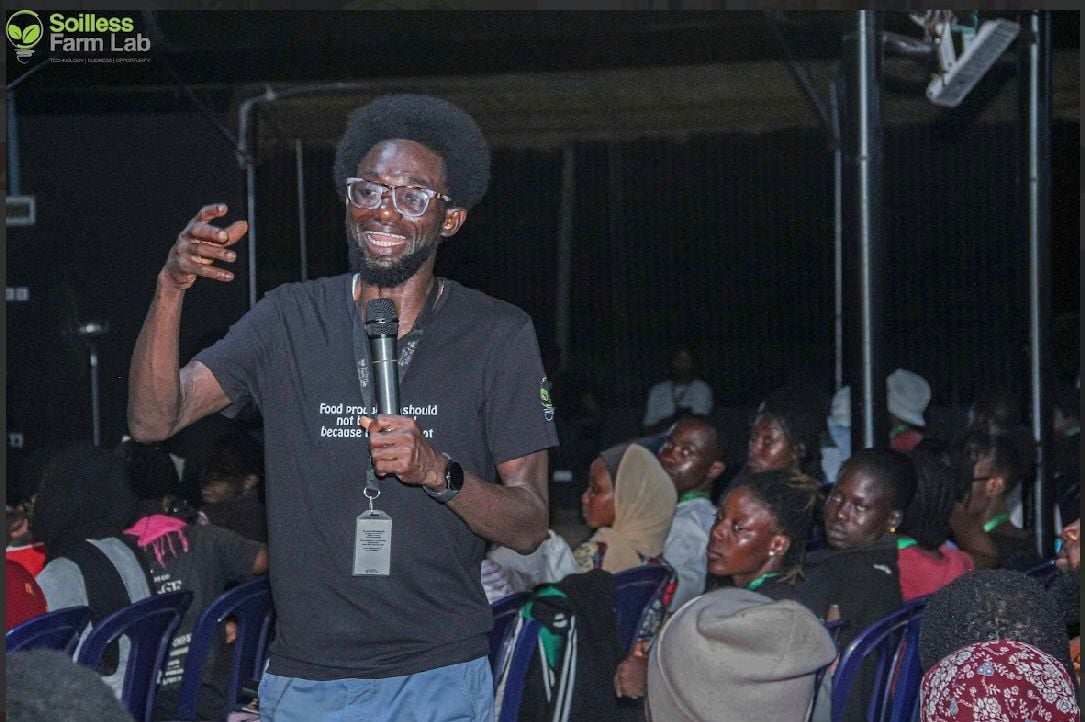
Between 2012 and 2020, he worked across Nigeria and South Africa, moving through different organisations in the sector. What he saw convinced him that the challenge was never a lack of ideas or land, but the same cycle of high costs, poor access to funding, and heavy risks that discouraged new farmers. It was in these gaps that he began to imagine something different.
“I started from IITA and worked with various organisations in Nigeria and South Africa, all within the agriculture space from 2012 to 2020,” he said.
“I realised the gap – funding, high risk and high setup cost.”
By 2020, Ogbole’s ideas had found a home. In Ogun state, he established the Soilless Farm Lab as a deliberate response to the very challenges that had stalled a generation of farmers. The vision was simply to take the risk out of farming.
Advertisement
Ogbole said Soilless Farm Lab was a way to “create a unique template for year-round growing, access to funds, reduce risk and reduce setup cost by localising the technology”.
What began as a concept has grown into one of West Africa’s largest soilless smart farms. Spread across 36 hectares with more than 800 greenhouses, the lab functions both as a production hub and as proof that science can scale. Inside its 23,000-ton capacity processing facility — certified ISO 22000, HACCP, and HALAL — vegetables, herbs, and spices are cleaned, packaged, and sent out to both local and international markets.
The numbers are no less striking. Every week, the farm exports eight tons of ugwu leaves, five tons of habanero peppers, and a growing list of other produce. For a country accustomed to food shortages and import dependence, Ogbole’s output is a statement of what Nigerian agriculture could become if innovation were allowed to lead.
WHY OGBOLE’S WORK MATTERS
Advertisement
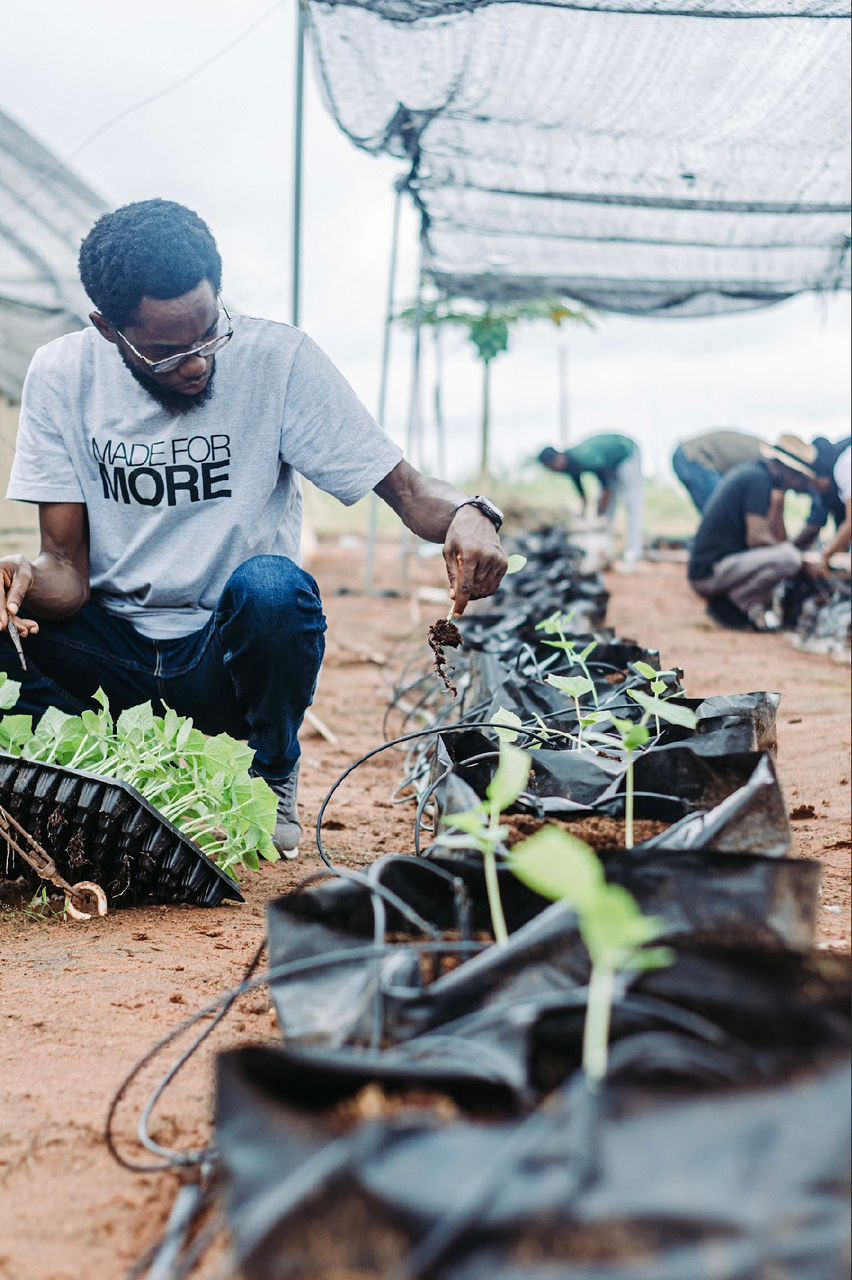
Ogbole’s decision to sink his hands into the uncertain world of agriculture is deeply connected to the crisis unfolding around him. Food insecurity is a daily reality for millions in Africa. Nigeria, in particular, faces a severe food crisis driven by a combination of factors.
The Global Hunger Index (GHI) ranks Nigeria 110th out of 127 countries with a “serious” level of hunger. As of mid-2024, more than 30.6 million people in Nigeria were facing acute food insecurity, and that number is projected to rise to 43.7 million by 2025 if current trends persist, according to the World Food Programme (WFP).
Advertisement
Innovations like soilless farming are critical because the conventional methods of agriculture are no longer a match for the modern challenges facing Nigeria.
The country is highly vulnerable to the impacts of climate change, with rising temperatures and erratic rainfall leading to severe floods and droughts. Between October 1 and 15, 2024, the Food and Agriculture Organization (FAO) reported that floods affected more than 9.2 million people and inundated 4.5 million hectares of land, including about 1.6 million hectares of farmland. This climate volatility makes traditional, rain-fed agriculture an increasingly risky and unreliable venture.
Advertisement
Population growth and urbanisation are equally shrinking Nigeria’s available farmland. The country loses approximately 350,000 hectares of land every year to desertification, according to the Nigerian Meteorological Agency (NiMet). This reality creates an urgent need for farming methods that can produce more food on less land.
While the need for more hands on the farm has never been greater, the people who should be filling that gap are largely absent. The average Nigerian farmer is over 50 years old, as agriculture is often seen as a profession of last resort for the youth. According to IITA, the widespread perception of farming as a difficult, low-paying, and unglamorous job has driven young people away from a sector that could offer millions of jobs.
Advertisement
Ogbole’s approach directly addresses this aging workforce by making agriculture a tech-driven, dignified, and profitable career path, changing the narrative from “backbreaking labour” to innovative entrepreneurship. Innovations such as soilless farming, hydroponics, and precision agriculture therefore provide more than just food, but also open pathways to economic development.
“Training! Speaking!! Showing proof!!!” he said, summing up his method of inspiring young Nigerians to see farming not as drudgery but as an opportunity.
THE SCIENCE BEHIND SOILLESS FARMING
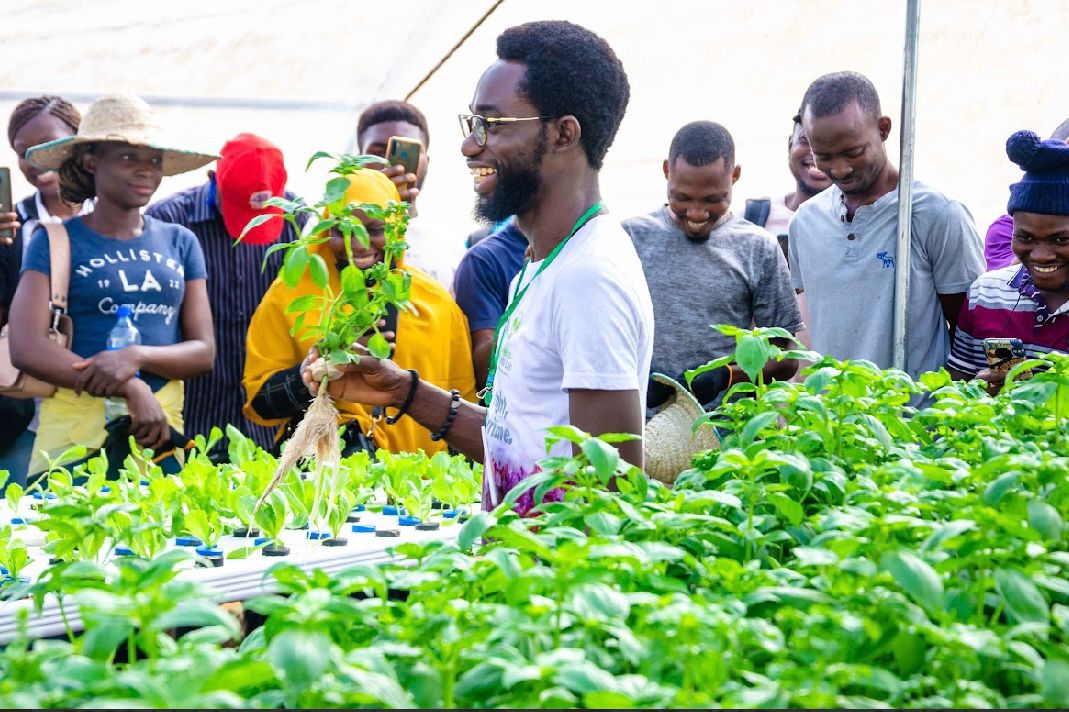
At the heart of Ogbole’s work are three primary methods of soilless cultivation. Hydroponics grows plants in nutrient-rich water instead of soil. Aeroponics suspends roots in the air and feeds them through a nutrient mist. Aquaponics goes a step further by integrating fish farming, where waste from fish serves as natural fertilizer for crops.
These systems are designed with efficiency in mind. Compared to traditional farming, soilless cultivation uses up to 90 percent less water, eliminates the need for annual soil tilling, which means zero erosion, and drastically cuts down on pesticides, herbicides, and fungicides. Farming in controlled environments means crops are shielded from floods, droughts, and unpredictable weather patterns that routinely devastate conventional farms.
Importantly, Ogbole is quick to clarify a common misconception: soilless farming does not “magically” boost yield.
“Soilless farming is a technology and does not increase yield, but rather gives you the possible yield a seed can,” he explained.
“If a seed is meant to give you two kilograms, soilless farming guarantees you two kilograms and not more.
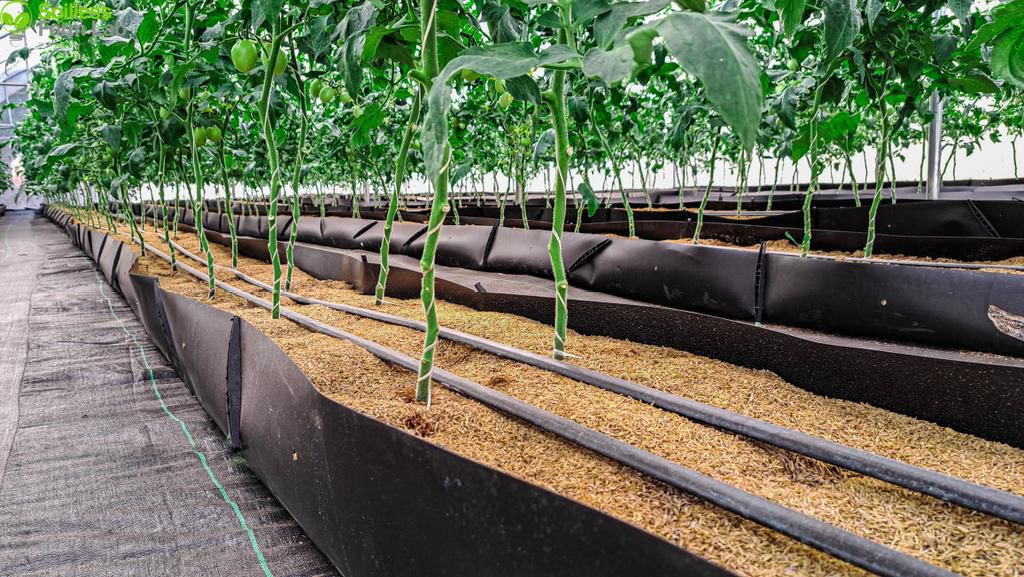
“The use of precision farming in soilless agriculture is why its environmental impact is reduced. For example, controlled farming means there is no need to break the ground annually to grow crops; the use of weed mats eliminates herbicides; reduced use of insecticides and fungicides lowers chemical load; and efficient irrigation techniques prevent nutrient runoff.”
Technology also plays a crucial role in the system’s accessibility and precision. Artificial intelligence and automation are already embedded in his farm lab, used for disease detection, irrigation control, and monitoring plant health.
“The disease detection is available to farmers who are aware and have access to the tools,” Ogbole added. “The truth is we need better tools and fewer farmers to ensure food security.”
Yet, for him, the real innovation is not only in the science but in the mindset. Farming, he insisted, needs to be run as a business. His advice to young growers is to sell first and farm later. He said without a demand, branding, and distribution, production alone was meaningless.
Ogbole positioned Soilless Farm Lab to serve both local markets and international exports, framing agriculture as a key driver of foreign exchange.
PLANTING SEEDS OF EMPOWERMENT
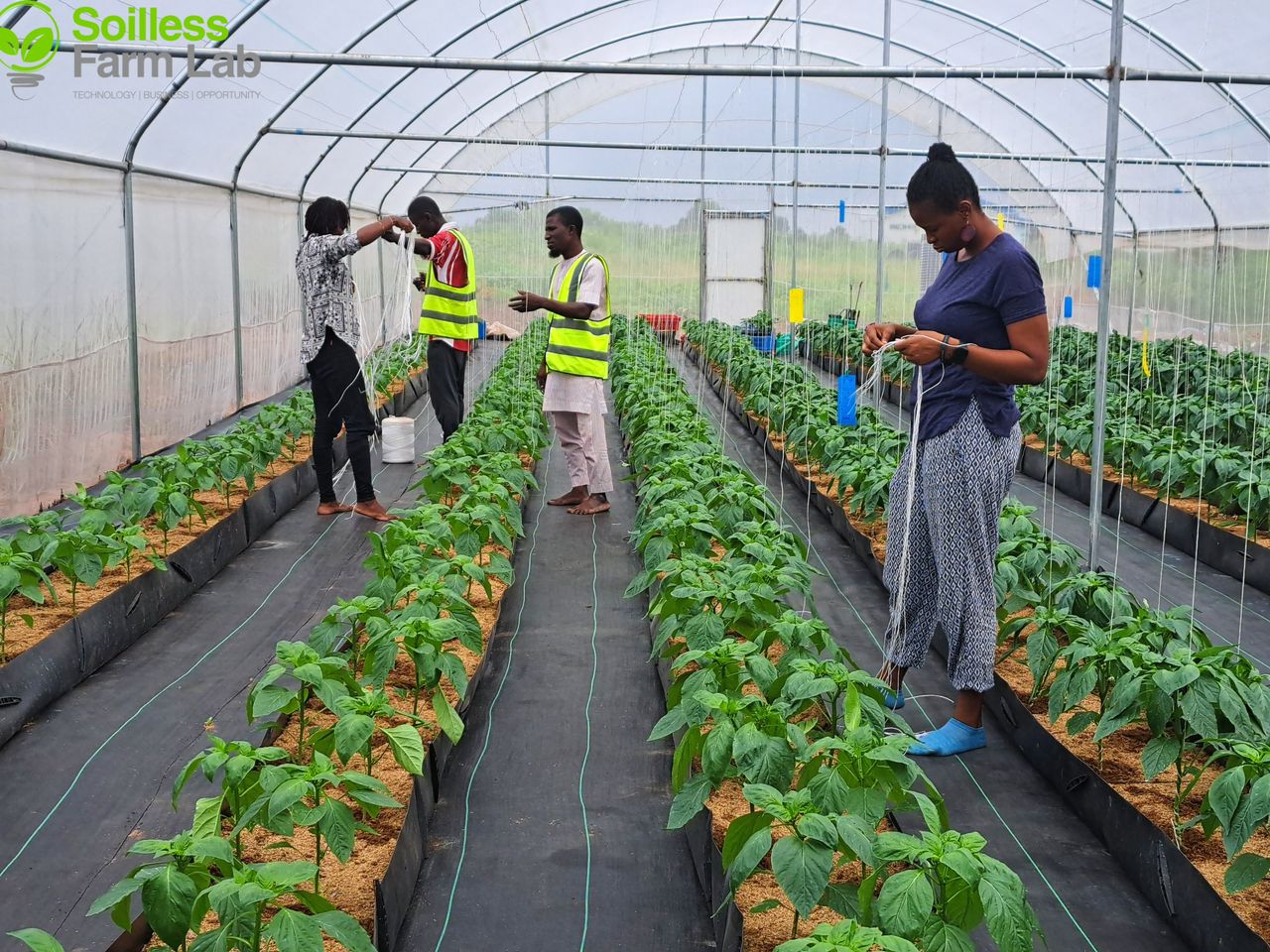
Beyond producing food, Ogbole sees farming as a pathway to dignity. Through his Work and Learn Programme and the Empowering Youth in Agribusiness (EYiA) initiative, he has trained thousands of young Nigerians and women in soilless farming techniques.
“My mission is simple: food production shouldn’t be seasonal because hunger isn’t. I’ve trained thousands of farmers through our Work and Learn programme, equipping them with modern techniques to thrive in agribusiness,” he said.
“I’m committed to making agriculture a cornerstone of economic and environmental progress.
“The win for me is having young women and youths intentionally picking agriculture as a way or path to a dignified and fulfilling life.”
The presence of Soilless Farm Lab in its host community has unlocked essential infrastructure that residents once thought out of reach.
“Today, our host community has access roads and electricity — four villages were connected for the first time — as well as access to water and schooling, with over 80 children enrolled for free who had never been to school before. WAEC fees have also been paid for students from more than eight villages who were ready to sit for the exam,” Ogbole said.
The ripple effects extend far beyond infrastructure. Ogbole told TheCable that his model tracks how individuals move into entrepreneurship, with many of his trainees starting small agribusinesses that now employ others. Others have secured jobs, gained admission into higher institutions, or earned scholarships.
Yet, despite these gains, challenges persist, and some of them are deeply cultural. In Nigeria, farming is still often seen as the occupation of the poor and unworthy.
“The biggest issue for agriculture is how Nigerians view farmers, talk down on them and make the young agripreneurs look like a failure who is down on their luck,” Ogbole said.
Policy remains a thorn. He said “government will be government”, while the private sector, fragmented and disjointed, remains hesitant to back long-term investments in disruptive farming models.
Ogbole also noted that media portrayals of farmers often default to images of struggling men and women, ignoring the reality that farming can be sophisticated, profitable, and aspirational.
“Media should cover agriculture as it is, show the good, bad and ugly. Celebrate the process of food and don’t use the haggard-looking person as the only picture of farming,” he said. “Other professions have those who are struggling, but they are not used as the picture of the profession.”
ACCOLADES AND ASPIRATION
Ogbole’s unconventional methods and philosophy have earned him both national and international attention.
Dubbed “the Wizard Farmer”, he has been featured on CNN, TEDx, and innovation platforms across the globe. He was also a fellow of Israel’s i-FAIR programme, which supports African innovators building solutions for development. These platforms placed him within the global conversation on agroecology, climate resilience, and sustainable wealth creation.
His work has earned him several accolades, including the Grand Winner of the Total Africa Startupper of the Year in 2019 and the Royal African Award in 2021. In 2018, CNN also named him among Africa’s top seven innovators.
However, Ogbole said recognition is not the destination. Applause and accolades may validate the journey, but they do not mean the work is done. He insisted that “hunger still exists, and we are not close to the end of the vision yet”.
“My long-term vision for Soilless Farm Lab is to be the largest horticultural hub in Nigeria and West Africa,” he added.
His message to Nigerian youths with a dream of solving national problems is to “find the business angle and focus on just that one thing”. Collaborate with others, because transformation cannot happen in isolation. And perhaps the hardest of all is to be patient.
In the end, Ogbole’s dream is bigger than himself, his company, or even Nigeria. It is about human dignity and progress — a world where poverty is defined, but food is not the metric.
